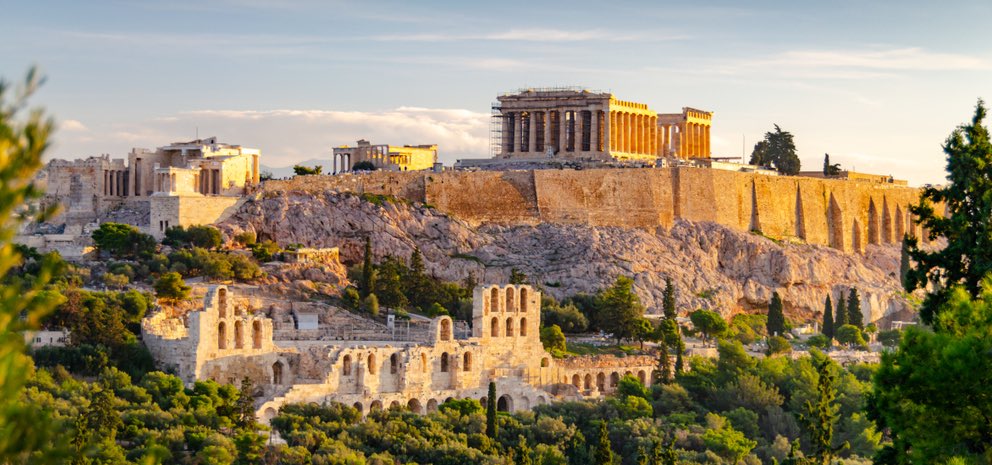
Echoes of Olympus: The Enduring Legacy of Greek and Roman Mythology
Myths, legends, folklore, and stories form an integral component of every culture or society. These myths typically feature supernatural beings, deities, heroes, and other imaginary characters and happenings. Mythology has significant social functions, such as providing explanations of natural phenomena, teaching moral values, preserving traditions, identity, and cultural foundation. Every corner of the earth features mythologies. From Greek and Roman mythology to Norse, Egyptian, Hindu, and many others.
Introduction to Greek and Roman Mythology
Greek and Roman mythology constitute the foundational narratives of Western civilization, shaping its cultural, artistic, and intellectual landscape. These mythic traditions emerged from the ancient Mediterranean world, encompassing a rich tapestry of gods, heroes, and legendary tales that continue to resonate across the ages.
Originating in ancient Greece around the 8th century BCE, Greek mythology evolved over centuries, drawing upon earlier Mesopotamian and Near Eastern mythologies. Its pantheon of gods, led by Zeus, Athena, and Aphrodite, reflected the Greeks’ attempt to understand the natural and supernatural forces governing the world. The epic poems of Homer, notably the “Iliad” and the “Odyssey,” and the works of Hesiod, such as “Theogony” and “Works and Days,” codified and transmitted these myths, serving as essential texts for Greek culture.
The Romans, inheritors of Greek civilization, adopted and adapted much of Greek mythology to their own cultural and political context. Jupiter, Minerva, and Venus became Roman counterparts to Zeus, Athena, and Aphrodite. Roman mythology also incorporated indigenous Italic deities and myths, emphasizing themes of martial prowess, civic duty, and imperial destiny. The myth of Romulus and Remus, founders of Rome, exemplifies the Romans’ narrative of divine origins and national identity.
Both Greek and Roman mythologies portrayed a pantheon of anthropomorphic gods and goddesses who wielded immense power over the cosmos. These deities personified natural forces, human emotions, and societal values while also exhibiting human-like flaws and passions. Their interactions with mortals, as depicted in countless myths and legends, explored universal themes such as love, heroism, fate, and hubris. Through these narratives, ancient societies sought to explain the mysteries of existence, reinforce cultural norms, and offer moral guidance to their citizens.
Greek and Roman mythology stand as enduring pillars of Western civilization, embodying the collective imagination and wisdom of ancient Mediterranean societies. These mythic traditions, rooted in the rich tapestry of gods, heroes, and legendary tales, continue to captivate and inspire audiences across the ages. In this exploration, we delve into the fundamental principles, key narratives, and historical contexts of Greek and Roman mythology, tracing their evolution from antiquity to the present day.
Foundations of Greek Mythology
Greek mythology, originating in ancient Greece circa the 8th century BCE, emerged from a complex interplay of cultural influences, including earlier Mesopotamian and Near Eastern mythologies. At its core lay a pantheon of gods and goddesses, each possessing distinct attributes, domains, and personalities. Chief among them was Zeus, the king of the gods, whose thunderbolts wielded power over the heavens. Athena, the goddess of wisdom and warfare, embodied the ideal of strategic prowess and intellectual acumen. Aphrodite, the goddess of love and beauty, symbolized the irresistible allure of desire and passion.
These divine figures populated a mythic landscape populated by heroes, monsters, and epic quests, as depicted in the seminal works of Homer and Hesiod. The “Iliad” and the “Odyssey,” attributed to Homer, recounted the Trojan War and Odysseus’s wanderings, respectively. At the same time, Hesiod’s “Theogony” and “Works and Days” offered genealogies of the gods and moralizing reflections on human existence.
Roman Mythology: Adaptation and Transformation
The Romans, inheritors of Greek civilization, assimilated and reinterpreted many aspects of Greek mythology within their own cultural and political framework. Jupiter, the Roman counterpart to Zeus, assumed a central role as the divine protector and father of the Roman state. Minerva, derived from Athena, embodied the virtues of wisdom, craft, and strategic warfare, while Venus, inspired by Aphrodite, personified love, beauty, and fertility.
Despite these parallels, Roman mythology also incorporated indigenous Italic deities and myths, reflecting the unique character of Roman society. The myth of Romulus and Remus, twin brothers raised by a she-wolf who went on to found the city of Rome, exemplified the Romans’ narrative of divine origins and imperial destiny. Additionally, the cult of Mars, the god of war, underscored the martial ethos and expansionist ambitions of the Roman Republic and Empire.
Themes and Motifs in Greek and Roman Mythology
At the heart of Greek and Roman mythology lay a tapestry of narratives that explored universal themes and motifs transcending time and culture. Love and desire, epitomized by the passionate affairs of the gods and goddesses, exemplified the eternal struggle between attraction and fulfillment, pleasure and pain. Heroism and valor, embodied by legendary figures such as Heracles, Achilles, and Aeneas, celebrated the triumph of courage and perseverance in the face of adversity.
Yet, alongside these triumphs lay tales of tragedy and woe as mortal hubris clashed with divine retribution. The myth of Prometheus, who stole fire from the gods and suffered eternal punishment, was a cautionary tale against the folly of challenging divine authority. Similarly, the story of Icarus, who flew too close to the sun and perished, warned of the dangers of unchecked ambition and pride.
Throughout these myths and legends, the gods and goddesses of Olympus and Rome intervened in mortals’ affairs, shaping their destinies and testing their virtue. Whether through divine favor or wrath, the gods’ actions reflected the capricious and unpredictable nature of existence, reminding mortals of their mortality and vulnerability.
The legacy and influence of Greek and Roman mythology extends far beyond antiquity, permeating every facet of Western culture and thought. From Renaissance artists who depicted classical themes to Enlightenment philosophers who drew upon ancient wisdom, the stories of gods and heroes continue to inspire and inform subsequent generations. Moreover, the enduring popularity of Greek and Roman mythology in literature, art, and popular culture attests to their timeless relevance and enduring appeal.
Greek and Roman mythology stand as timeless testaments to the enduring power of the human imagination and the universality of human experience. Through their gods, heroes, and legends, these mythic traditions have left an indelible mark on the cultural heritage of the Western world, enriching our understanding of the past and illuminating the complexities of the human condition. As such, the study of Greek and Roman mythology remains a scholarly pursuit and a journey into the depths of the human soul.


